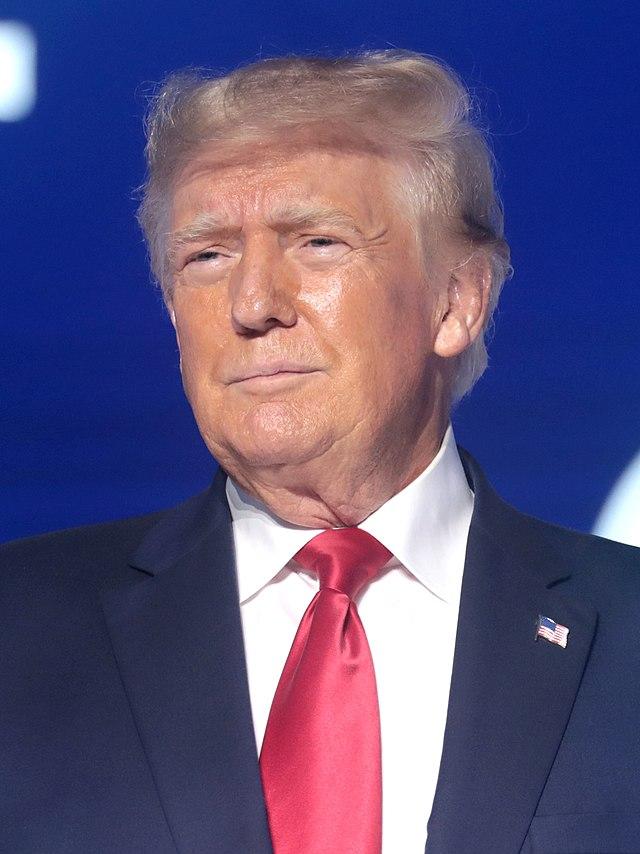It took the prospect of a second Trump presidency for Brussels to suddenly discover the virtues of free trade. Ursula von der Leyen now dangles a “zero-for-zero” tariff deal—years too late and painfully transparent.
Yes, really.
Perhaps, just perhaps, Europe should have made that offer a long time ago—before the first tariffs, before the steel and aluminum disputes, before their hypocritical WTO filings.
Without question, before they spent years lecturing U.S. administrations on the supposed virtues of multilateral trade regimes they had rigged to their advantage.
American taxpayers have subsidized European peace, prosperity, and strategic irrelevance for eight decades. From the beaches of Normandy to the barricades of Berlin, U.S. servicemembers gave their lives to offer Europe a second chance at civilization.
They got it.
And they used it to build social democracies on the back of American hard power—and, yes, American manufacturing decline.
Whether through the Marshall Plan or NATO’s Article 5, we supplied the troops, tanks, and treasury. In return, Europe slapped tariffs on American goods, sued U.S. tech companies, outsourced their energy policy to Moscow, and surrendered industrial policy to Brussels.
This makes it all the more bitterly ironic that they now cry foul—that Trump’s tariffs are no way to treat an ally.
Where was “zero-for-zero” when Reagan rebuilt American strength after the stagflation years? How about at the end of the Cold War? Where was it when Bill Clinton pushed for China’s entry into the WTO while Europe quietly pocketed the spoils?
Where was it when Barack Obama let transatlantic relations drift, and the Europhile press anointed Angela Merkel as the “leader of the free world”? That didn’t age well.
It wasn’t on offer because Europe never feared losing access to the American market.
Until Trump.
Von der Leyen’s preemptive surrender was no gesture of goodwill. It’s a plea from a cornered technocrat who sees what’s coming: a second Trump term, a U.S. trade policy guided by strategic self-interest, and a world where the old racket of Euro-guilt-for-gain is finally over.
The European Union isn’t negotiating from strength. It’s bracing for another dose of reality—the same one Trump delivered in 2018 when he imposed tariffs on EU steel and aluminum, refused to be bullied in Davos, and told NATO members to pay their fair share or else.
The media chorus, echoed by what passes for Democratic leadership these days, warned that Trump’s tariffs would ignite trade wars and isolate America. But now Brussels is courting the supposed isolationist with an offer to zero out tariffs on industrial goods.
The legacy press and the political class—from Capitol Hill to Foggy Bottom—won’t say it out loud, but Trump’s tariffs are working—not by inflicting pain, but by exposing the lie that one-sided trade could last forever.
Europe no longer gets to sell cars in Detroit while banning beef from Kansas. They don’t get to bathe in American consumer demand while shielding Airbus and their state-backed industries behind walls of protection.
This is what genuine negotiation looks like.
Trump’s “America First” was never just a political slogan—it's the strategic linchpin uniting his approach to trade, defense, energy, and diplomacy.
It sends a clear message to the world: if you want access to the largest consumer market on Earth, you’d better stop treating American workers like afterthoughts and American industries like ATMs—particularly if your national security depends on American military power.
Of course, the foreign policy establishment and the Eurocentric corporatists will wring their hands. They pine for the old order—where diplomats talk, Americans pay, and European bureaucrats preen. They’ll urge Trump to take the “deal” as proof that his confrontational style has run its course and must now yield to the polite rituals of “normal diplomacy.”
He shouldn’t fall for it.
If Europe is serious about free trade, then a symmetrical zero-for-zero offer is a start—but it can’t stop there. It must extend to agriculture, digital services, energy infrastructure, and regulatory compliance. And the last of these is the greatest of these.
Why? Because the over-regulated quasi-state that is the European Union cloaks itself in high-minded process while issuing a thicket of overt and covert edicts designed to block market access for entire categories of American goods.
And while they’re at it, they can start spending 2.5% of GDP on defense—not in 2035, but now.
This isn’t about punishing allies. It’s about ending the decades-long arrangement in which America protects Europe, powers its recovery, and is left holding the bill.
The EU’s sudden overture is a vindication, not a concession. It proves that Trump was right to confront what past presidents were too timid to touch. And it reveals the quiet desperation behind Europe’s polished press releases.
So, to our friends across the Atlantic, your offer is noted. But it comes at least forty years too late—and more than a few hundred billion American (not euro) dollars short.
For decades, you enjoyed the protection, prosperity, and patience of the United States while lecturing us on diplomacy, economics, and morality—and disappearing into the shadows when the chips were down.
Now you come bearing concessions only because you fear a president who demands something in return.
That isn’t partnership.
Simply put, it’s not how friends treat their most vital ally.
Charlton Allen is an attorney, former chief executive officer, and chief judicial officer of the North Carolina Industrial Commission. He is the founder of the Madison Center for Law & Liberty, Inc., editor of The American Salient, and the host of the Modern Federalist podcast. X: @CharltonAllenNC

Image: Gage Skidmore from Surprise, AZ, United States of America, CC BY-SA 2.0, via Wikimedia Commons, unaltered.
Source link

